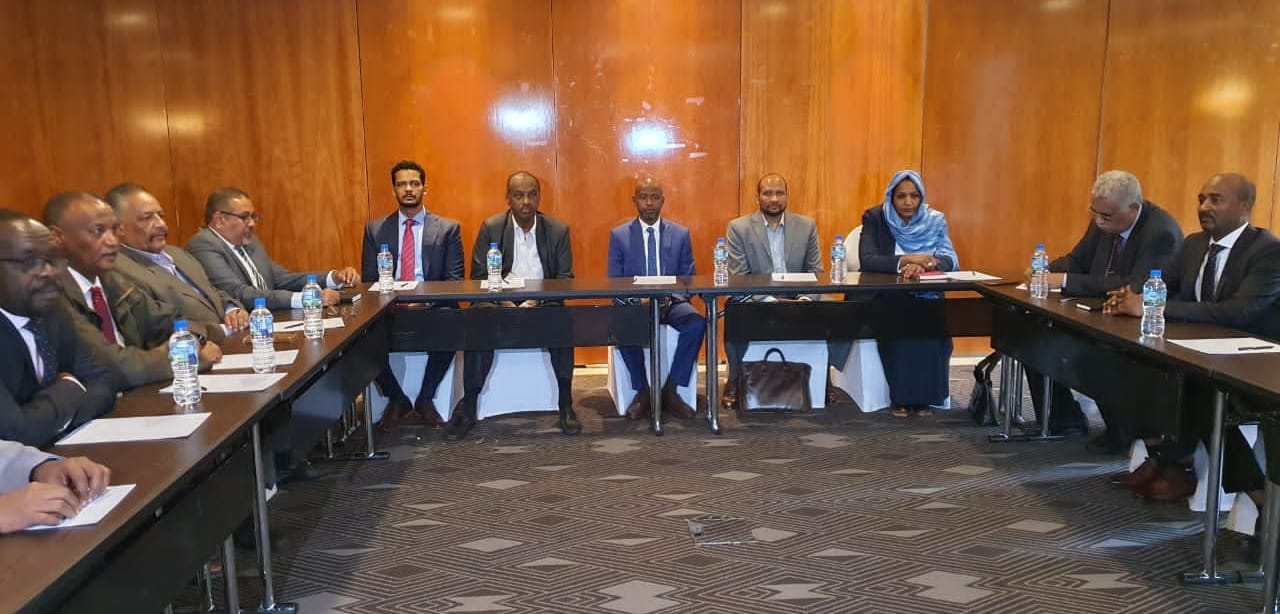Updated: 0 December 0000 00:00:00

Decisions of the Meeting of Framework Forces in Addis Ababa and What the War Has Left
Abdullah Rizk Abu Seimazah
The political and civil forces that signed the framework agreement held a general meeting on August 15 and 16 in the Ethiopian capital, Addis Ababa, to assess the situation in the country in the context of the ongoing war and to outline a vision for dealing with it.
This meeting, along with other activities and initiatives initiated by external political forces, may indicate a shift of the opposition political action abroad as part of efforts to establish a position for those forces on the Jeddah platform. Meanwhile, negotiations, which have been limited so far to the warring parties aiming to reach an agreement to end hostilities, seem to be entering the second phase concerning political arrangements for the transfer of power to civilians.
In this context, the meeting aims to strengthen the alliance organizationally and politically to play an active role in the ongoing political developments. Following the pattern of the framework agreement project, the meeting avoided contentious issues that require consensus as a real basis for national harmony. To enhance the cohesion of the alliance, the meeting, which was specifically reserved for it, included concise and vague phrases, as well as numerous popular and intellectual political considerations, which could potentially become points of agreement for many forces outside the umbrella of the framework.
The meeting took place following an Executive Bureau meeting of the Forces for Freedom and Change in Cairo and after delegations from various political forces visited regional countries, suggesting that these nations are concerned about the deteriorating situation in Sudan and aspire to play a role in addressing the crisis that threatens regional stability, in coordination with their political entities.
The meetings response to the ongoing war resonates with previous policies since the dawn of independence, and with the absence of a national project. This hints that the meetings resolutions might have outlined broad guidelines, if not an entire strategy. The statement touched upon the role of the deposed Salvation Regime in exacerbating the situation, but failed to identify the direct causes of the war, which are a manifestation of power struggle and wealth division.
The meeting did not consider the war, which has changed everything, as an ordinary event or a qualitative development due to the escalation of contradictions to the brink of explosion. This necessitates a reevaluation of the situation, its possible developments, and directions amid the changing circumstances. Reassessing visions, crisis-solving projects, tactics, and mechanisms that dominated the preceding period, in terms of their suitability for the subsequent phase, was ignored. It also failed to revisit the framework agreement itself, not in terms of its suitability as a foundation for any alliance or solid basis or nucleus of any consensus. While it has not yet been finalized in its ultimate agreement form, it is sometimes cited as one of the reasons that led to the war outbreak.
Since the war is the most significant event to affect the country for over four months, the priority remains to cease it. However, the concluding statement of the framework meeting in Addis Ababa did not present a roadmap for ending the war, by translating the anti-war rhetoric from slogans into practical solutions. This stems from a critical observation that the anti-war forces failed to prevent the outbreak of the war initially and then failed to contain and end it. Their efforts have been limited - from the beginning - to achieving unity within a broad anti-war front.

